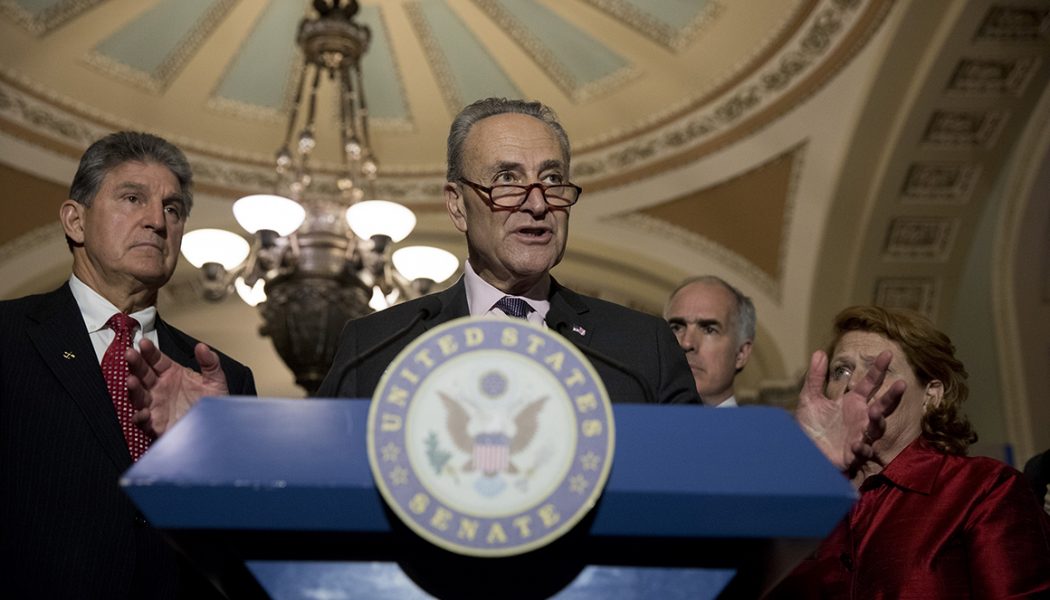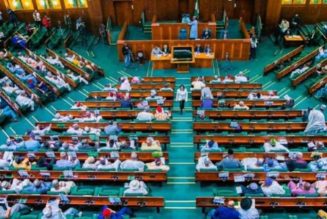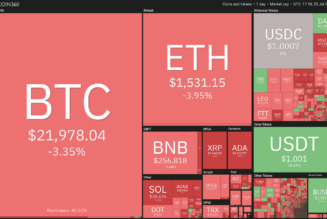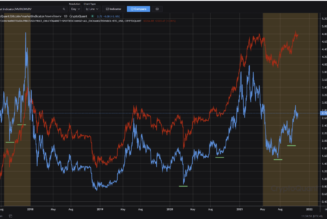Like McCain, the moonshine-swigging former quarterback isn’t afraid to let his colleagues know where he stands on a given day, either in the hallways of the Capitol or on cable news airwaves. Manchin often publicly discusses how he’s struggling with issues or tough votes. In a nod to his state, he lives on a boat while in D.C. named “Almost Heaven.”
Senators say following Manchin’s appearances on cable news or in papers is just as important as following the remarks of Senate leaders to understand where things are going.
“Joe loves to be in the middle of the action. And if you’re unsure about what he’s thinking in that moment, just turn on any TV set and there he is,” said Sen. Shelley Moore Capito, Manchin’s Republican counterpart from West Virginia.
Making known his dissension from Democratic Party orthodoxy is essential to Manchin’s political survival in a state former President Donald Trump won twice, by roughly 40 points. And though he has long sought to be an essential Senate moderate, he has found mostly frustration during his 10 years as a senator, eventually declaring of the hallowed chamber: “This place sucks.”
He chafed at the leadership style of former Senate Majority Leader Harry Reid (D-Nev.), then found things little better under GOP Leader Mitch McConnell (R-Ky.), finding both leaders unwilling to accommodate his style of politics. Trump mostly ignored Manchin’s entreaties of cooperation, and Manchin had little in common with President Barack Obama, famously shooting a hole through Obama’s climate plan in a 2010 ad.
These days, Manchin couldn’t be in a better spot. His ally Chuck Schumer is now majority leader and Joe Biden is president after running as a uniter. They need his support on just about everything, and Manchin has spoken to Biden several times in the past week alone.
In a recent conversation recalled by Manchin, Biden explained what he went through trying to convince Republicans to come on board with the Affordable Care Act in 2009, only to be jilted after months of talks.
“Joe, I don’t have time to do that again,” Biden told Manchin.
Manchin replied: “I respect that Mr. President, I really do.”
This time around, Democrats are itching to brush aside what they see as unserious Republican offers to compromise, and use tools like budget reconciliation to pass more expansive, progressive bills with only a simple majority. Manchin is also bolstered politically by a GOP governor pushing for a large aid package.
But there are major limits to what Manchin, who sits in the seat once occupied by arch-institutionalist Robert Byrd (D-W.Va.), is willing to do. Budget reconciliation is constrained by a rule named for Byrd, and though Democrats could overrule those restraints, Manchin says he will not. And even if that process allows the minimum wage increase Democrats hope for — no foregone conclusion — Manchin said he will only agree to increasing it to $11 an hour.
“I was more than willing to do [vote for the budget] to help the president the way he believes he has to with the urgency of the pandemic,” Manchin said. “But he knows I’m going to do everything I can to make it bipartisan and I will protect the Byrd Rule at all costs.”
Manchin, along with Tester, are probably the only two Democrats that can win a seat in their states in the current political climate. Manchin mulled retirement or running for his old job as governor, but in 2018 ran for re-election and narrowly prevailed — in part for his support for Supreme Court Justice Brett Kavanaugh.
Because of that dynamic, Manchin gets a wide berth from Democrats when it comes to his voting record. The United States doesn’t have royalty, but Manchin is pretty close to the lord of the Senate at this moment now that he’s the deciding vote.
Sen. Brian Schatz (D-Hawaii) greeted him this month as “your highness,” a moniker that makes Manchin a bit sheepish.
“They just kid around. None of that does anything for me. It’s just a little friendly chit-chat back and forth,” Manchin said. “I didn’t lobby for this position, I didn’t pick it.”
Compared to most Democrats, Manchin is a fiscal conservative, often votes with the GOP on abortion legislation but has tried to cut deals on everything from immigration to gun background checks. He’s found more success lately on coronavirus aid than past endeavors, and is already pushing Biden’s package in a more moderate direction.
The Senate is already taking cues from Manchin, approving his amendment with Sen. Susan Collins (R-Maine) 99-1. Manchin famously endorsed Collins in her 2020 battle for reelection, which burnished both of their bipartisan credentials.
But she says her friend is about to have the weight of the Democratic Party bearing down on him.
“My experience with Joe is he’s a person you can count on. And if he gives you a commitment he keeps it,” Collins said. “ It can’t be easy for him to be in a caucus where the leader is putting enormous pressure on all of its members to toe the party line regardless of the merits.”
As far as his relationship with Schumer goes, Manchin praises the New York Democrat but bristles at the notion he can be whipped in line.
“Schumer has never come to me and said: ‘Joe this is a party-line vote, we’ve gotta have you.’ He understands me well enough. And that’s what I respect. We get along great,” Manchin said.
During the Senate’s recent marathon voting series, it was obvious why Manchin’s vote is so tantalizing to Republicans. He was the deciding vote on several amendments, siding with the 50 GOP senators on protecting federal funds for houses of worship and pushing back against an Obama-era water regulation.
And perhaps the most important major issue where Manchin will side with the GOP is on the minimum wage. He simply seems immovable on his opposition to a $15 national hourly rate.
“I would amend it to $11. You know that. Because I think that’s basically a base that we should have in America right now,” Manchin said, explaining that he would raise the wage up from $7.25 over two years. “It gets people who work 40 hours at least over the poverty guidelines. The states that have $15, already have it. That’s great.”
Tester and centrist Sens. Kyrsten Sinema (D-Ariz.) and Mark Kelly (D-Ariz.) will also be central decision-makers to Democrats’ priorities on immigration, health care and spending issues. But even among that group, Manchin stands out.
“Who’s the most likely maybe to vote with Republicans? I would say Joe,” said Sen. Tim Kaine (D-Va.).
Put it all together, and it’s almost hard to imagine a legislator having that much sway over the priorities of a party that controls the Senate, House and White House. Sen. Kevin Cramer (R-N.D.) said simply: “He is the man.”
Manchin was with his party over the past week when it mattered though: He voted against GOP efforts to withhold funding to schools with vaccinated teachers that aren’t reopening, spurned a Sen. Tom Cotton (R-Ark.) effort to make it harder to expand the Supreme Court and sided against Sen. Marco Rubio’s (R-Fla.) effort to crack down on Biden’s “catch-and-release” immigration policies. And then he voted to approve the budget and move forward Biden’s agenda, for now at least.
Votes like those show that despite his reputation, Manchin will side with Democrats more often than not. And that’s likely to be the difference-maker that Biden needs to get his agenda through over the next two years.
After a decade of exasperation, Manchin finally has the chance to shape legislation in his own aisle-crossing image. But it hasn’t changed Manchin’s opinion of the Senate: It still sucks.
“That hasn’t changed,” he said as he walked through the Capitol’s basement toward the Senate floor. He was immediately swarmed by reporters, asking for his view on the day’s news.










